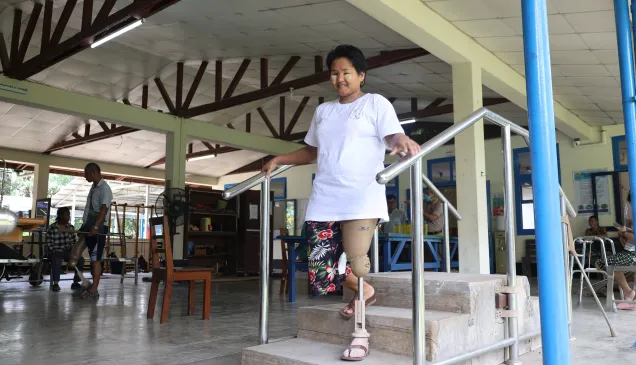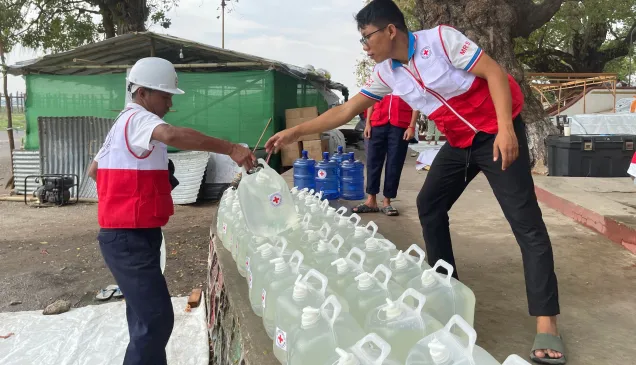Myanmar: Displaced people set up small businesses, trade anxiety for smiles
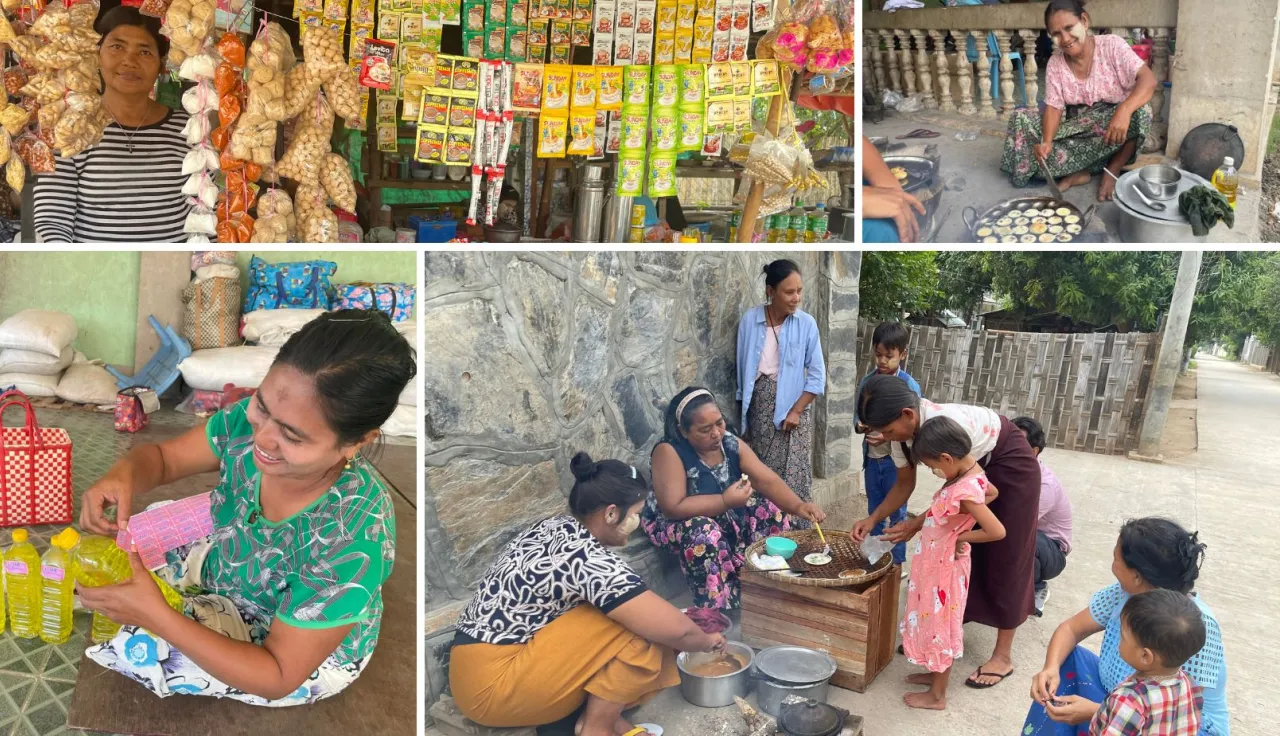
The smell of freshly made Mont Pyar Ta Latt, a famous snack in Myanmar, wafts through the air promoting Ma Thae Thae’s streetside food stall as customers line up for their turn to place an order. “I am happy that people enjoy my snack,” says Ma Thae Thae as her hands move swiftly making the snack.
Daw Myo Thandar Tun, popularly known as Ma Thae Thae, is among the residents of a displacement camp in Mandalay Region who were able to start their own small businesses with support from the International Committee of the Red Cross (ICRC). "What I earn from my shop is used for our everyday needs so that we can save my husband's income for our future. We do not have a home here," says Ma Thae Thae, who fled from her home in Sagaing Region to escape armed conflict.
Intense clashes in central Myanmar since December 2021 have forced many people to flee their homes and seek temporary shelter. Unable to return home, people from Ye U and Taze townships of Sagaing Region have been living in a camp for the displaced for more than two years.
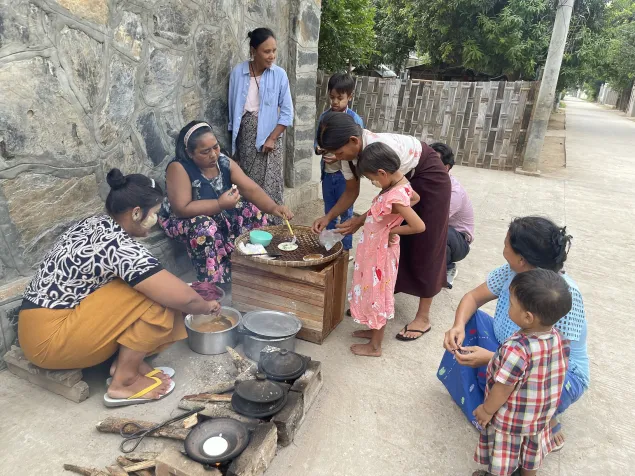
People from the displacement camp and those from the host village enjoy freshly made snacks prepared by Ma Thae Thae.
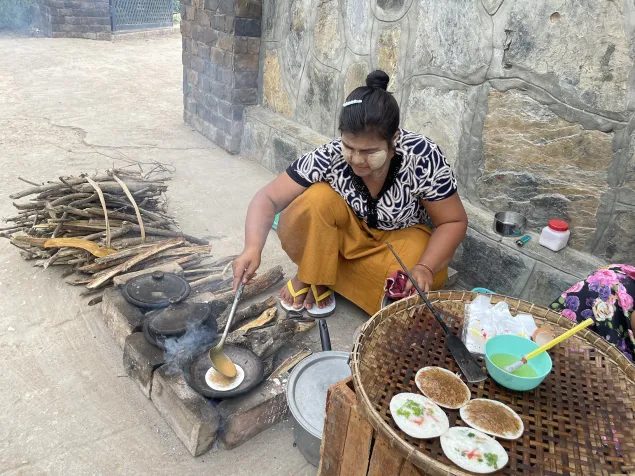
Ma Thae Thae looks forward to each new day as she is now able to generate a regular income through her small business.
Starting from early 2022, the ICRC team in Mandalay has been distributing food and other supplies. Moreover, the team also identified the need for a sustainable solution for displaced people to earn a livelihood and live with dignity.
"In June 2023, we introduced a pilot project providing cash grants to some of the affected families to set up small-scale businesses and generate regular income," says Myo Min Thein, an ICRC staff member in Mandalay. "After a comprehensive assessment, 19 people were selected to initiate various small businesses based on their skills and capabilities. We also gave them advice regarding the type of businesses they could start," he adds.
The business initiatives include a grocery store, a tea house, a noodle shop, traditional snack stalls, a motorcycle repair shop and a soap and detergent production unit.
"Not only people living in the displacement camp, but also those from the host village come to my shop. We have good sales," says Daw Win Mar, who runs a grocery store. She had previously opened a tea shop in her village and continues to dream of reopening a big tea house one day. "I have a big family of four children, an elderly mother and three grandchildren. We need sustainable income to cover the expenses for health care, education, and daily necessities. This motivates me to continue working hard," she adds.
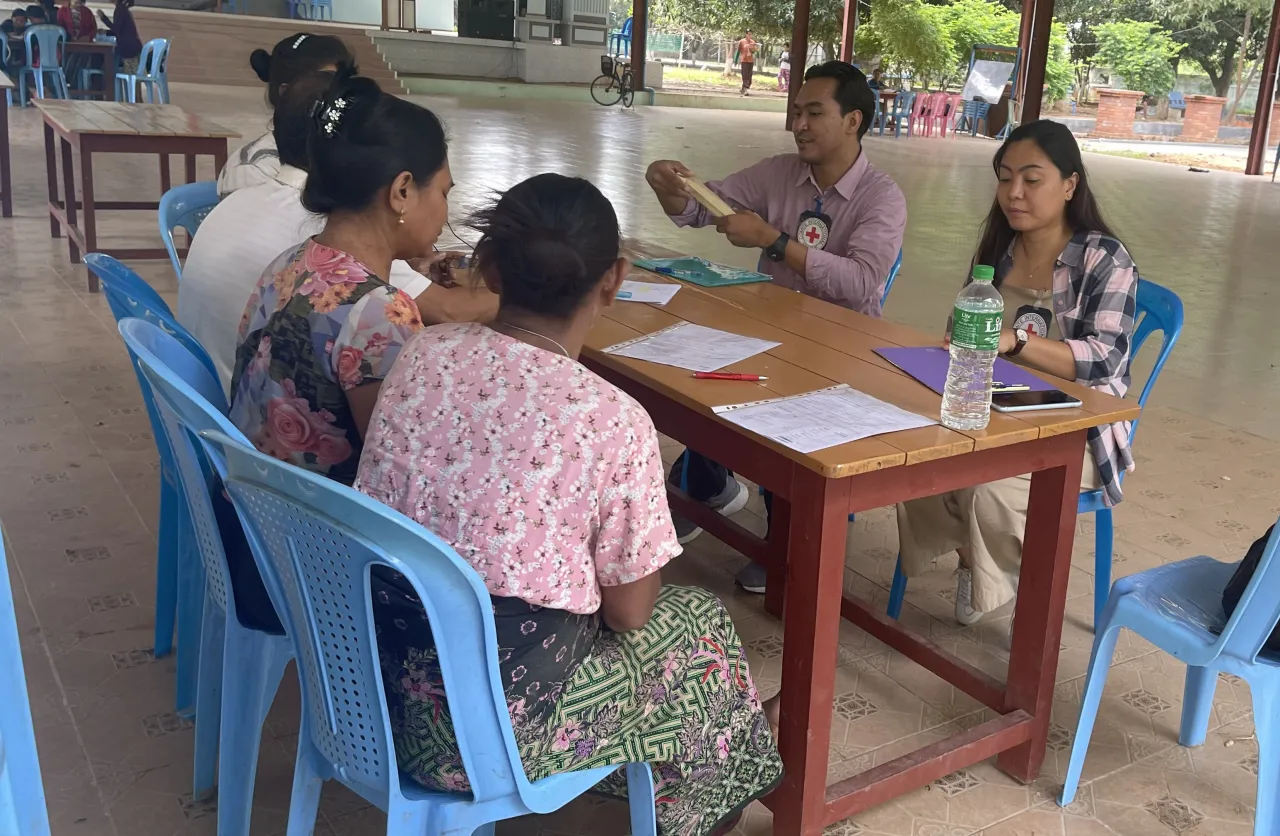
ICRC staff members distributed cash grants to selected individuals as part of a pilot project to help displaced people set up small businesses.
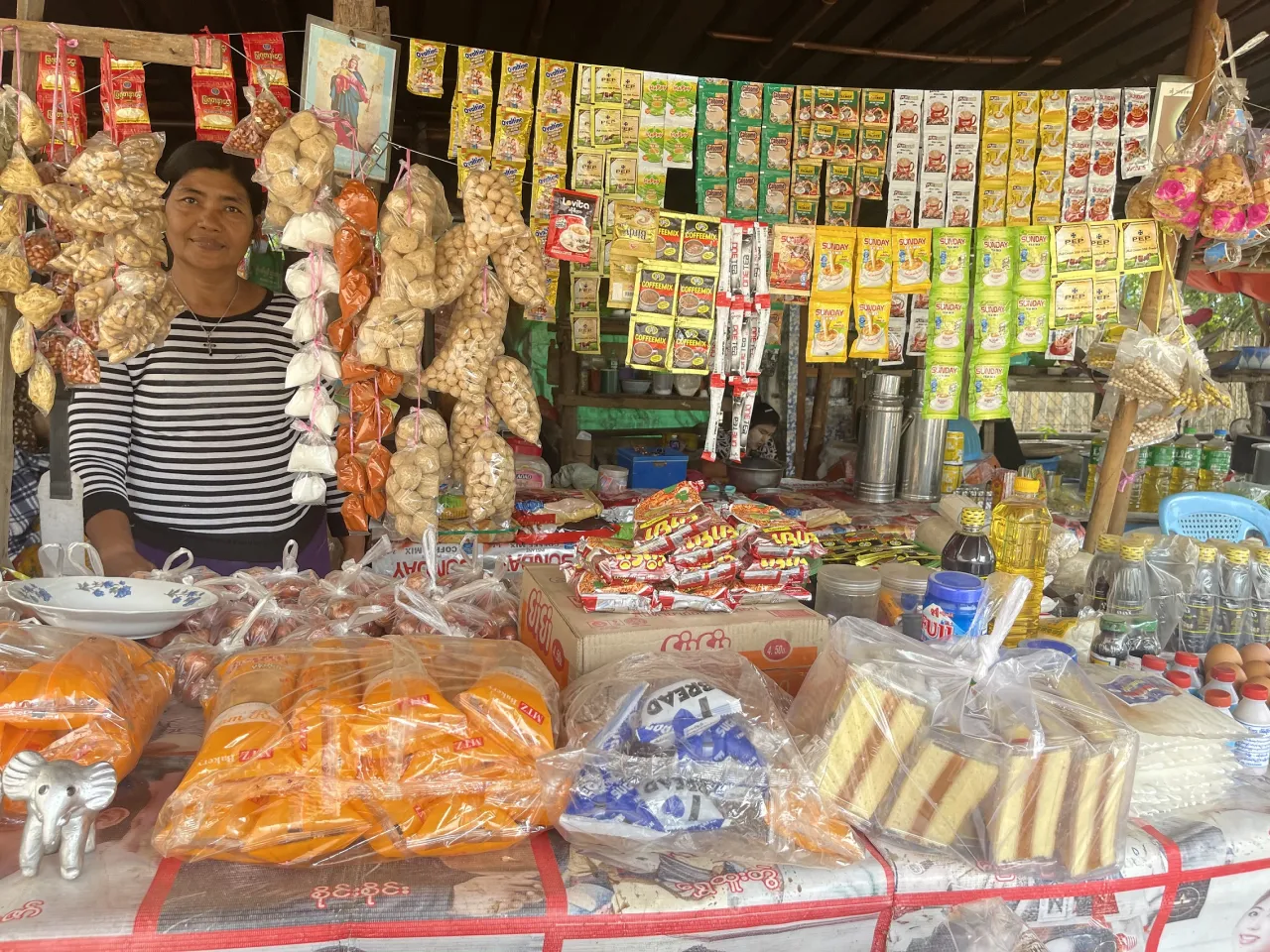
Daw Win Mar started a small grocery shop that has been doing good business.
The project has not only brought economic stability to displaced families but also fostered a sense of well-being in the community. "It is so heartwarming to see smiles instead of worry lines on their faces," says Myo Min Thein.
Ma Thae Thae shares how her anxious days have now turned into days of hope.
I used to feel overwhelmed with worry thinking about the loss of our property and life back in our village. But ever since starting this shop, there is no time to dwell on negative thoughts. I start each day by cooking for my family and then I get ready for business. Even though my days are long, I don't feel exhausted.
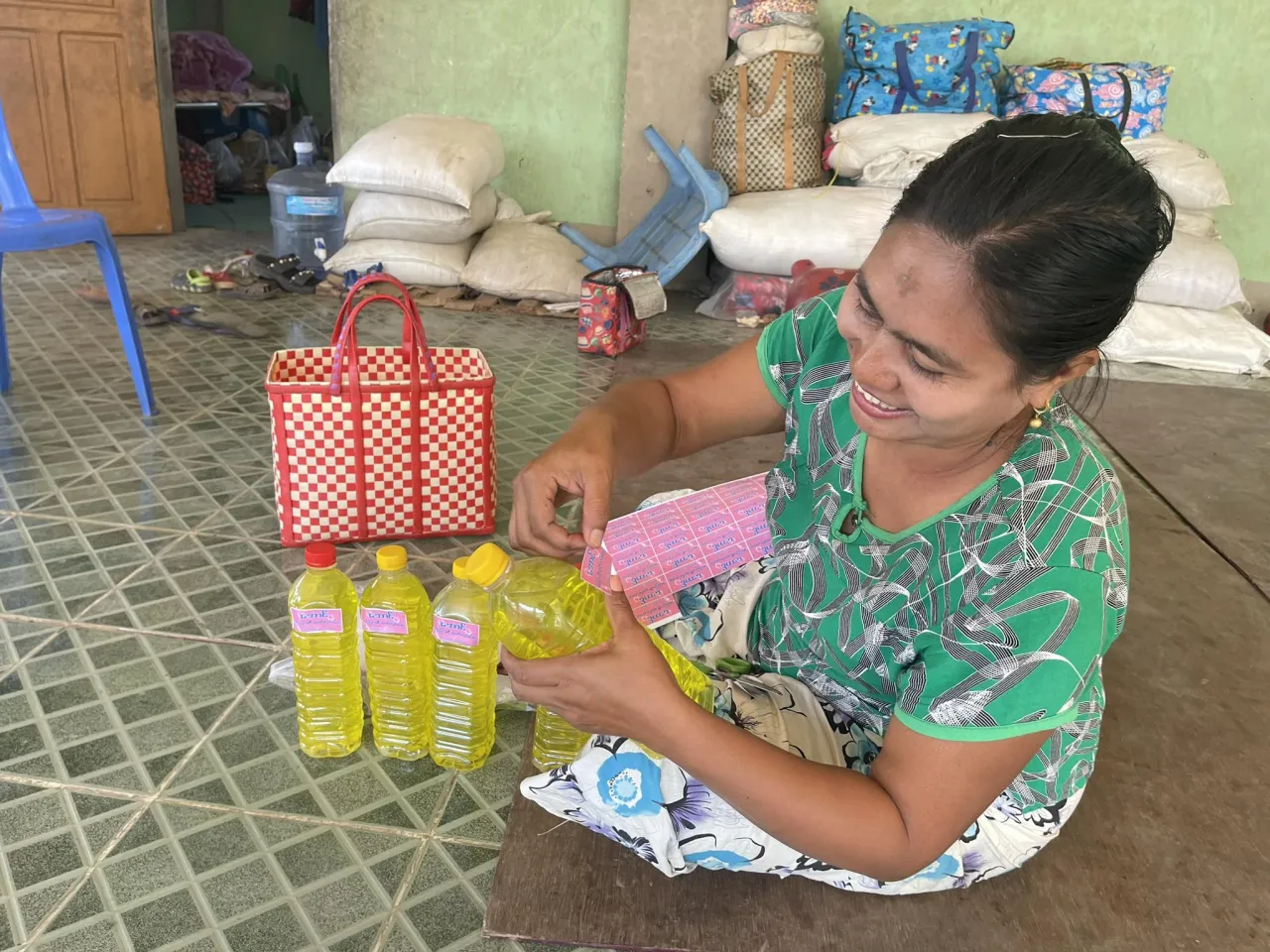
One of the residents of the displacement camp works at a unit to produce homemade soap.
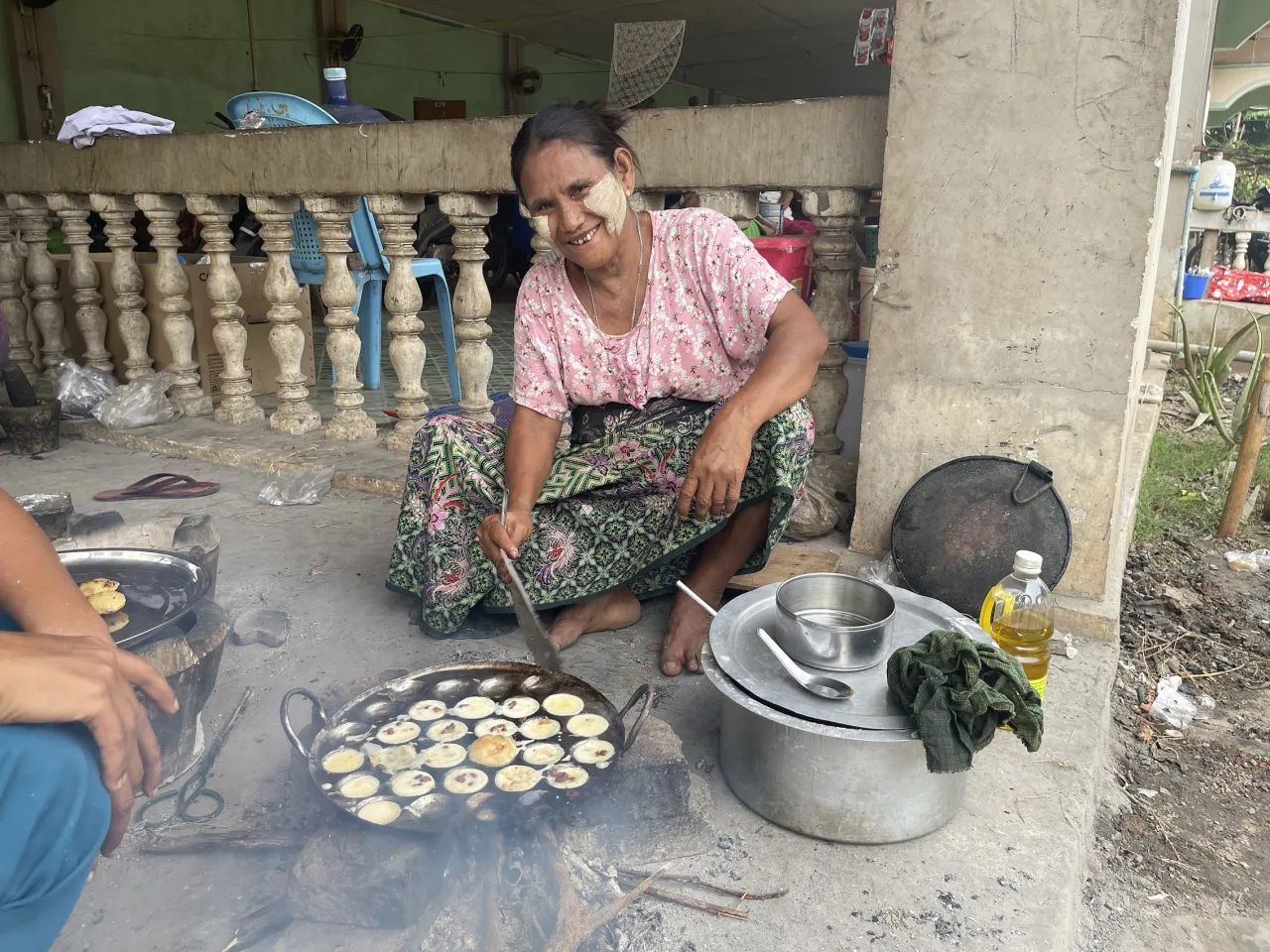
Despite their lives being disrupted by conflict, displaced people now smile brightly as they work hard and support their families through their own small businesses.


